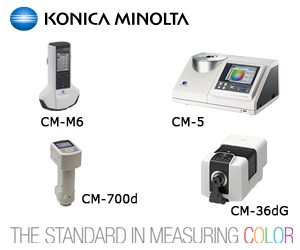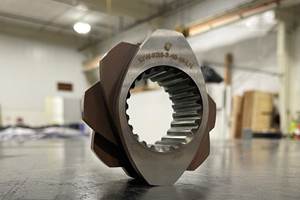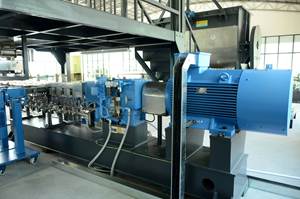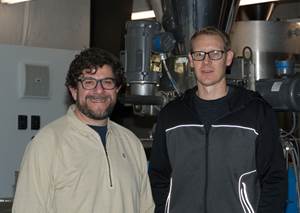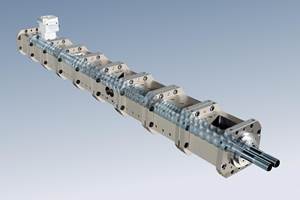K 2004 News Preview: Compounding
Compounding news at the K Show includes the use of alternative motors to save space and raise output on twin-screw machines.
Compounding news at the K Show includes the use of alternative motors to save space and raise output on twin-screw machines. You’ll also see radical redesigns of a couple of high-end corotating twin-screws to lower their cost with-out losing much performance.
Driving innovation
One of the more interesting motor developments won’t be at the show, but will be talked about at the Farrel booth. For the past five years, with no fanfare, Farrel has been using a radial-piston hydraulic motor on single-screw extruders that are gravity-fed hot compound from another extruder or mixer. Farrel also has used this hydraulic motor on mill rolls to form ABS sheet for dicing.
These variable-speed motors are said to be more powerful and compact than a typical crankshaft-type hydraulic motor or an electric motor of the same horsepower. They provide full torque throughout the whole speed range, and they typically mount directly on the drive shaft without gears. Radial-piston hydraulic motors are made by several manufacturers, though Farrel uses motors from Hagglunds Drives.
Another development at K is the first commercial application of a new four-motor drive to twin-screw compounding. The CMG drive is built by K. & A. Knoedler GmbH in Ostfildern, Germany, represented here by Henschel America. Henschel’s German parent developed a new drive system, called TMG, that applies the four motors to two screws. The drive is said to increase output significantly over the same size extruder with a conventional drive.
Henschel is building a special counter-rotating twin-screw extruder for the K show with a clear polycarbonate cover to show how the new motor works. Henschel will adapt the drive next to corotating twin-screws.
Although new to production-scale extruders, this motor has been used for a couple of years on a laboratory twin-screw machine by Leistritz in Germany.
Standardized to cut cost
Machine builders will launch new standardized, medium-performance versions of their high-end, customized twin-screw compounders. Berstorff is introducing a new corotating twin-screw, the ZE Basic, which costs about 20% less than its high-end ZE-UTX for nearly the same performance. It offers fewer options and it uses some unusual technology to save cost. For example, an inductive heating method is used to harden the inside of the barrel, reportedly imparting the same wear resistance as bimetallic liners. ZE Basic comes in sizes of 26 to 77 mm with drive packages for maximum speeds of 600, 900, or 1200 rpm.
Berstorff also has a new C-clamp barrel system that allows 70% faster changing of barrel segments than conventional bolted flanges or tie rods.
Coperion will offer a new brand of corotating twin-screws designed in Germany and assembled in China. Called Coperion STS, these models are at least 30% less costly than Coperion Werner & Pfleiderer’s high-end ZSK machines.
STS machines use German-built gear boxes, but the bearings are designed for medium performance and wear. Coperion expects the new Chinese-built line to compete with single-screws rather than the ZSK. The Coperion STS and ZSK machines will be sold in the U.S. by separate sales forces from Ramsey, N.J.
Batch mixing news
Farrel will introduce a crossover technology from its acquisition of Francis Shaw rubber machinery in 1999. An Intermix intermeshing twin-rotor batch mixer from Shaw has been adapted to mix heat-sensitive plastics. It has five cooling zones instead of two and a modified rotor geometry.
Related Content
How to Configure Your Twin-Screw Extruder: Part 3
The melting mechanism in a twin-screw extruder is quite different from that of a single screw. Design of the melting section affects how the material is melted, as well as melt temperature and quality.
Read MoreSustainability Among the Many Niches at Niche Polymer
Founded in 1987, Niche Polymer continues to grow—both organically and through acquisition—by focusing its product-development efforts on ever-changing market needs. Adding value to both industrial and post-consumer scrap is a growing part of this effort.
Read MoreMore Than a Compounder: They Have the Science to Create New Custom Materials
Insight Polymers & Compounders leverages its expertise in polymer chemistry to develop next-generation materials.
Read MoreHow to Configure Your Twin-Screw Barrel Layout
In twin-screw compounding, most engineers recognize the benefits of being able to configure screw elements. Here’s what you need to know about sequencing barrel sections.
Read MoreRead Next
For PLASTICS' CEO Seaholm, NPE to Shine Light on Sustainability Successes
With advocacy, communication and sustainability as three main pillars, Seaholm leads a trade association to NPE that ‘is more active today than we have ever been.’
Read MoreLead the Conversation, Change the Conversation
Coverage of single-use plastics can be both misleading and demoralizing. Here are 10 tips for changing the perception of the plastics industry at your company and in your community.
Read More


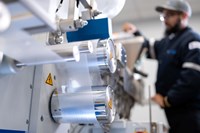



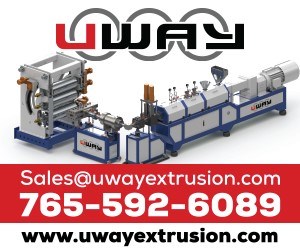

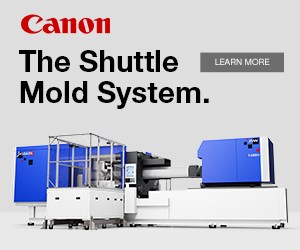
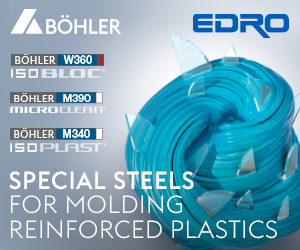

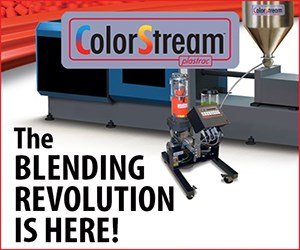
 (2).jpg;maxWidth=300;quality=90)

